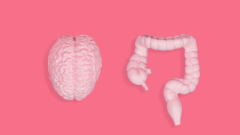Is it true that you are what you eat? Here’s why improving your gut health is an essential aspect of … [+] mental wellness.
What you eat has a powerful impact on how you live and feel each day. For some, poor food choices lead to lethargy, fatigue and a constant sense of exhaustion. For others, a nutritious diet fuels energy, sharpens focus and brings mental clarity.
The gut-brain connection dramatically influences your mood, energy levels and overall mental well-being. Understanding this connection can help you make more informed choices that support both your mind and body.
Here are three primary ways the gut-brain connection affects your mental health, according to research.
1. The Gut-Brain Axis Affects Your Mental State
The connection between the gut and the brain, known as the gut-brain axis, is a complex, two-way system. It enables the brain to affect gastrointestinal functions and also allows the gut to play a significant role in shaping mood, thought processes and overall mental well-being.
Your gut is a miniature biome, an ecosystem populated by trillions of microorganisms working together to maintain balance. When this balance is disrupted, it affects not only your physical health but also your mental well-being. Over time, this imbalance can undermine both your body and mind.
The gut microbes have the ability to cause cravings for foods they specialize in metabolizing or for foods that suppress their microbial competitors. According to a 2014 study, certain gut bacteria can hijack the nervous system to influence eating behavior by triggering dopamine release in response to high-fat, sugary foods that support their survival.
Researchers found that this manipulation could drive individuals to consume certain types of food that help the microbes thrive, even if those foods are unhealthy in larger quantities for the host.
“Microbes in the gastrointestinal tract are under selective pressure to manipulate host eating behavior to increase their fitness, sometimes at the expense of host fitness,” the researchers explain.
But, your microbiota is highly adaptive, and a 2017 study published in Nature shows that changes in diet can start to influence the composition of gut bacteria within as little as three days.
By consuming foods that promote beneficial bacteria, such as fiber-rich foods, prebiotics and probiotics and reducing foods that support harmful bacteria, like processed, high-fat and sugary foods, you can encourage the growth of healthy microbes while suppressing the growth of those associated with negative health outcomes.
These cravings can make it difficult to stick to healthier food choices, and when we find ourselves repeatedly reaching for foods we know aren’t the best for us, it’s easy to feel frustrated or even disappointed in ourselves. This inner conflict between what we want to eat and what we feel we should eat can lead to self-criticism, negatively impacting our self-esteem and self-worth.
Over time, this cycle of craving, giving in and feeling guilty or defeated can erode our confidence and create a sense of failure around food choices, which, in turn, can intensify stress and anxiety. Recognizing that cravings often have a biological basis rooted in gut health can help us approach these choices with awareness and the self-compassion we deserve.
2. Nutrient Deficiencies Influence Emotional Well-Being
Anxiety and depression are widespread mental health challenges that affect people all over the world. Your diet plays a vital role in brain chemistry, and a lack of essential nutrients such as vitamins, minerals and omega-3 fatty acids can contribute to such mood imbalances.
Nutrient intake patterns play a significant role in both the prevention and treatme





